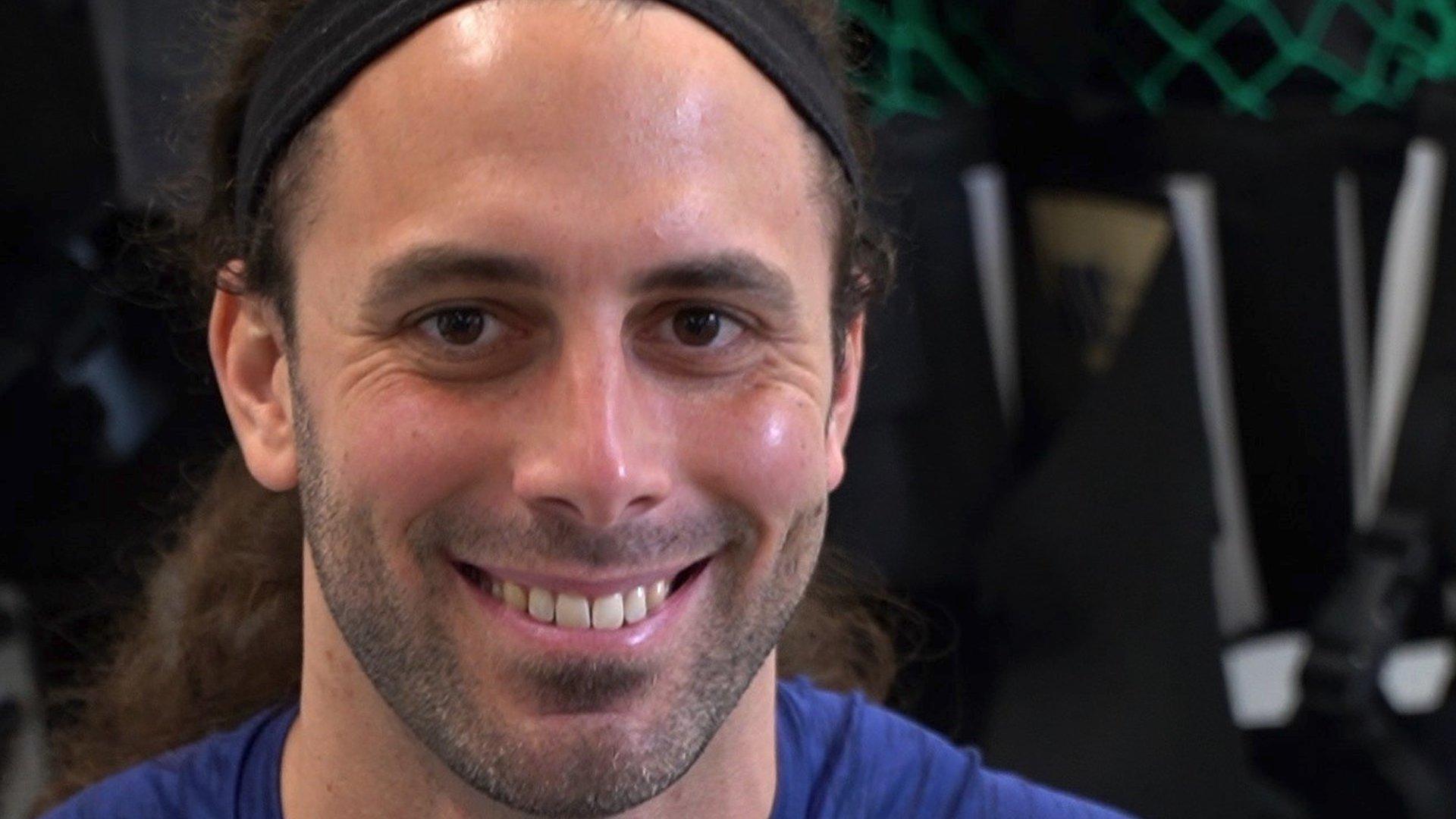Breakthrough spinal trial helped me be a mum again
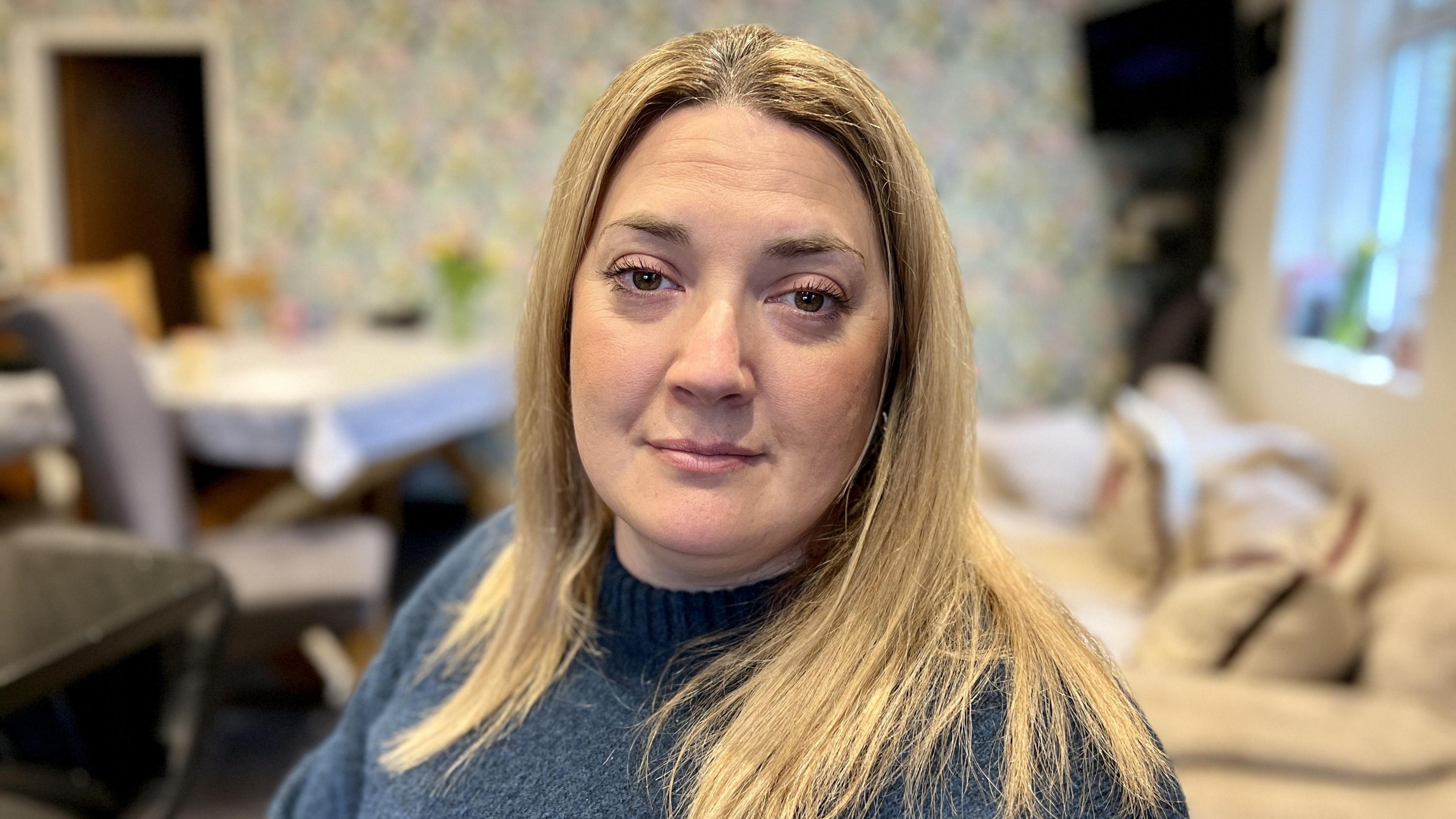
Sarra Wilson, from Bedfordshire, says the Pathfinder2 trial has been "life changing"
- Published
A woman paralysed seven years ago said a medical trial involving spinal stimulation had helped her regain the use of her hands.
Sarra Wilson, from Bedfordshire, said the Pathfinder2 study had increased her upper body strength, enabling her to read a book and play games with her children as well as comb her daughter's hair.
Pads transmitting electrical pulses were stuck to the outside of her skin near her injured spinal cord while she completed gym exercises.
Although NHS England said this type of technology was in its "early development", charity Spinal Research said it meant recovery from paralysis was "a step closer".
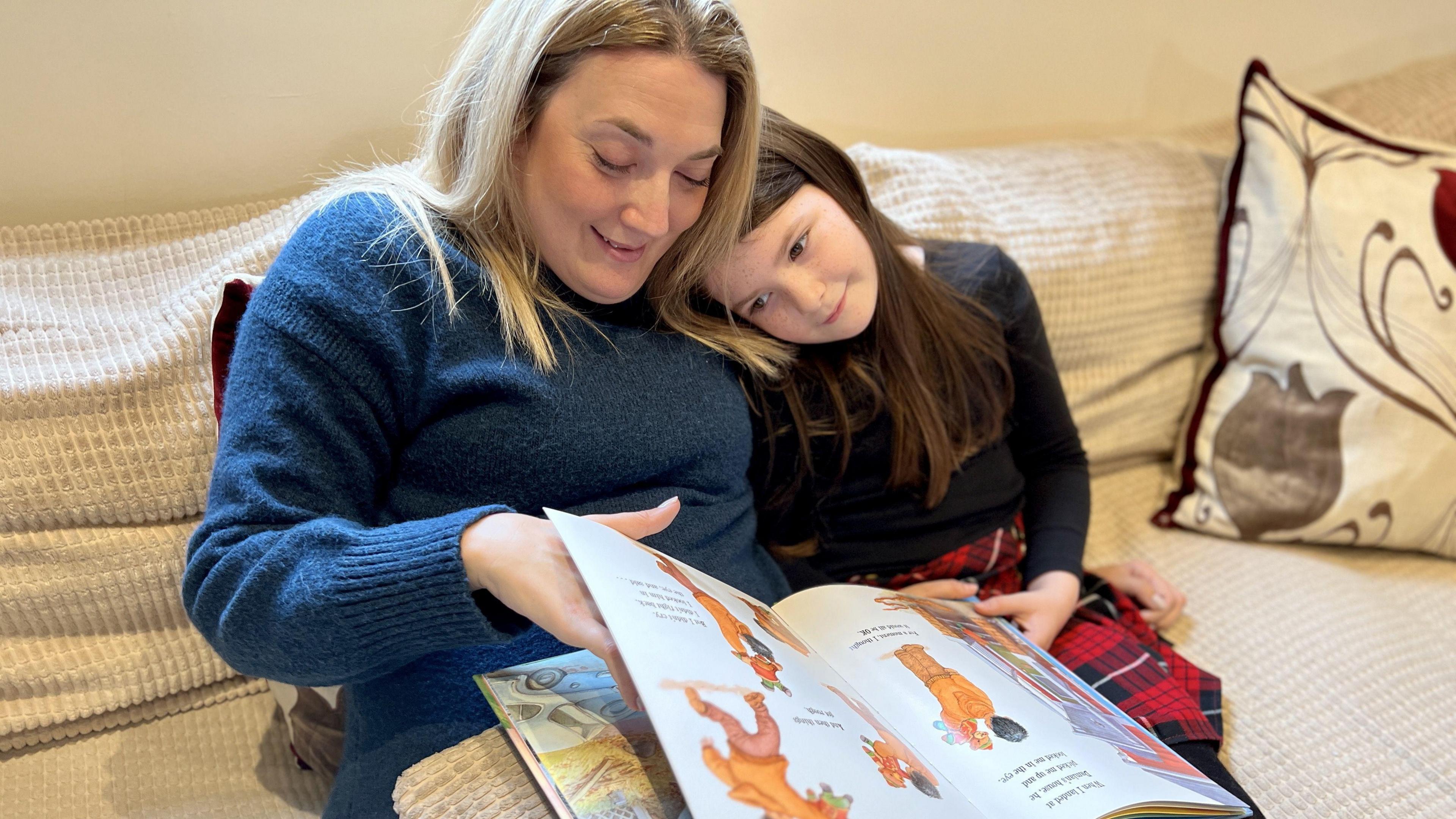
Sarra Wilson is a mother to seven-year-old Isla and has two other children aged 10 and 13
Mrs Wilson broke her neck when she was thrown off a horse which was spooked by a pheasant, on her family farm in 2018.
The 39-year-old, from Houghton Conquest, near Bedford, severed her spinal cord in the small gap between her helmet and the top of her body protector, leaving her paralysed from the chest down.
Unable to reach her phone, she lay on the ground until a friend's three-year-old daughter found her.
"For me it was like instant paralysis," she said. "I just couldn't feel anything."
She was taken to Addenbrooke's Hospital in Cambridge and when she woke from a coma, the only part of her body she could move was her head.
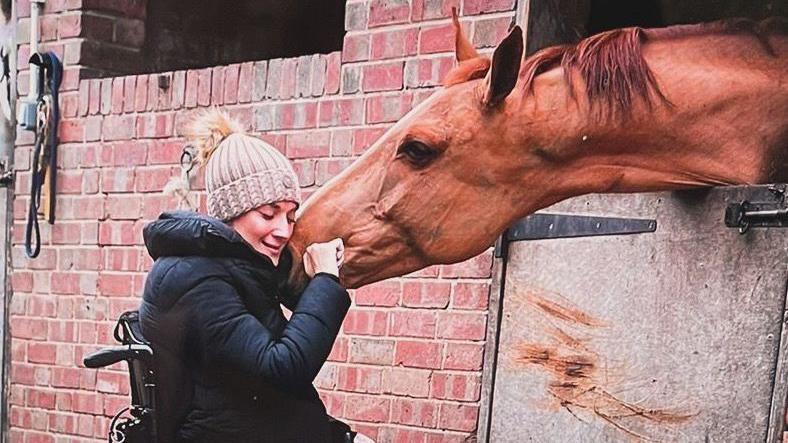
Sarra Wilson still looks after horses at her farm in Bedfordshire and is now able to help groom them after regaining her grip
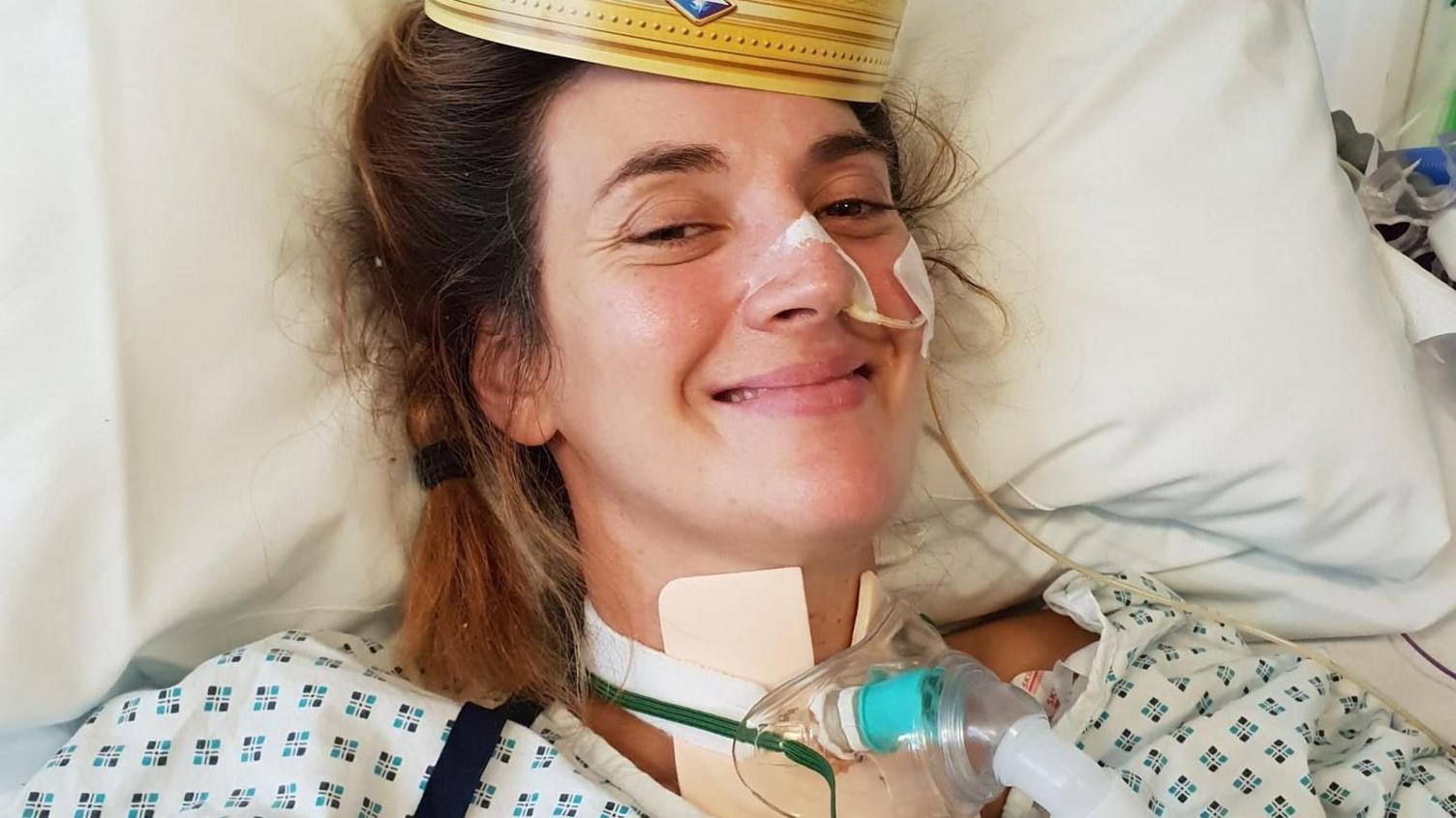
While in hospital in 2018, Sarra Wilson was so ill, she had to have a tracheostomy to help her breath
Mrs Wilson took part in the year-long-trial which involved stimulating her spinal cord with electrical pulses with a device called ARC-EX, developed by Onward Medical.
The pulses excited neurons so that signals weakened or interrupted by injury, could drive movement.
Following the trial, she could perform tasks on her farm as well as use a computer, which she said had made a huge difference to her independence and confidence.
"It was really life changing," she said.
'I just feel like mum now'
Mrs Wilson described how she could now be an active parent again.
"Just to be able to use my arms so I can cook with them, we can bake together, I can pass them things in the bath.
"It sounds trivial but those things really make a difference."
"I obviously wanted to be the best mum I could be, but felt utterly useless at times, but I don't remember the last time I felt like that because I just feel like 'mum' now. It's really exciting for the future."
The research, which involved 10 participants, has been published in the peer reviewed journal "Neuromodulation: Technology at Neural Interface".
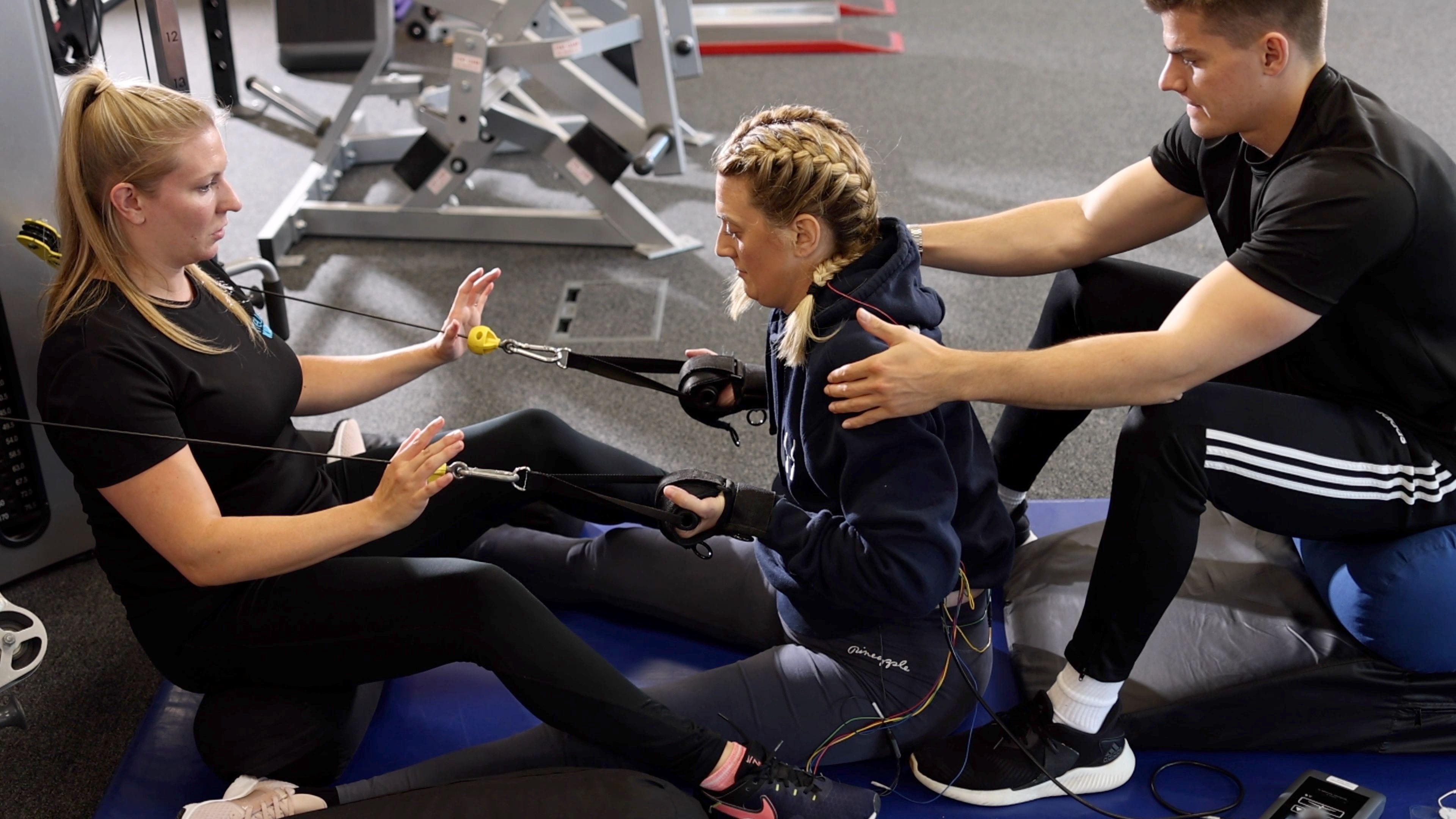
Sarra Wilson took part in 120 intensive stimulation and activity based rehab sessions at Neurokinex while on the year long trial
Other trial participants saw improvements in their balance and lower body functions.
The study follows research focussed on upper body strength which was published in 2024, external in the journal "Nature Medicine" which saw positive results.
This latest Pathfinder2 trial was funded by the Spinal Research charity and looked at different part of the body.
Chair Tara Stewart said: "This therapy is not a silver bullet. It works on spared spinal tissue so results will vary widely, and it does need to be paired with proper active rehabilitation.
"Even so, this is a game changing moment. It's now time to stop talking about spinal cord injury as being incurable and to stop telling people with this injury that nothing can be done."
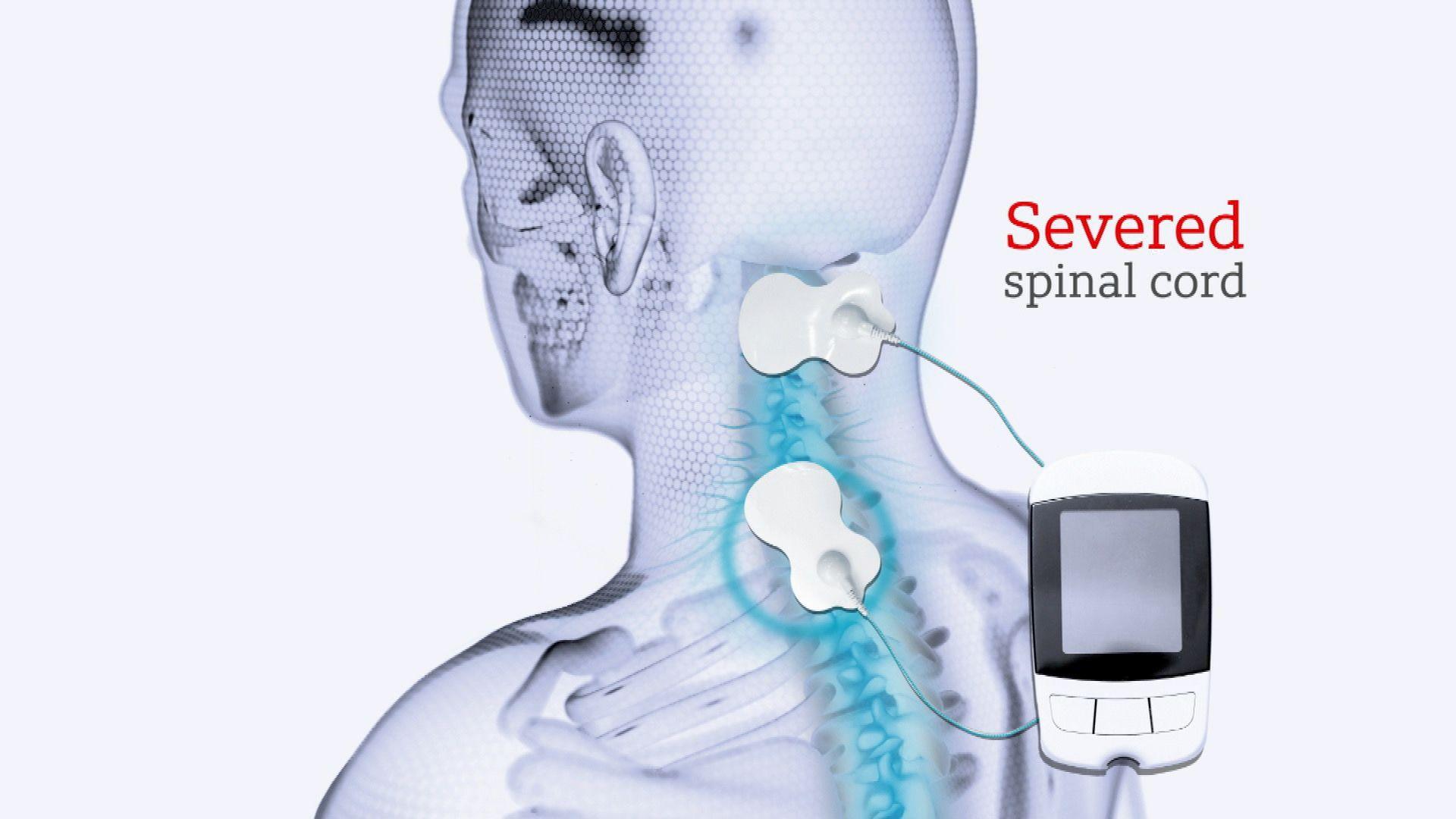
Eletrodes were placed near the site of the spinal injury in participants while they exercised to stimulate neurons in the spinal cord and help them regrow
The study concluded that a larger scale trial would be beneficial.
It also said the absence of a control made it difficult to establish how much progress was down to rehabilitation exercises and how much could be attributed to spinal stimulation.
Spinal Research is funding three other UK studies involving use of implantable and external spinal cord stimulation systems.
"With proper investment in the spinal research field we could see significant progress towards a cure for paralysis in the next five to seven years," said Ms Stewart.
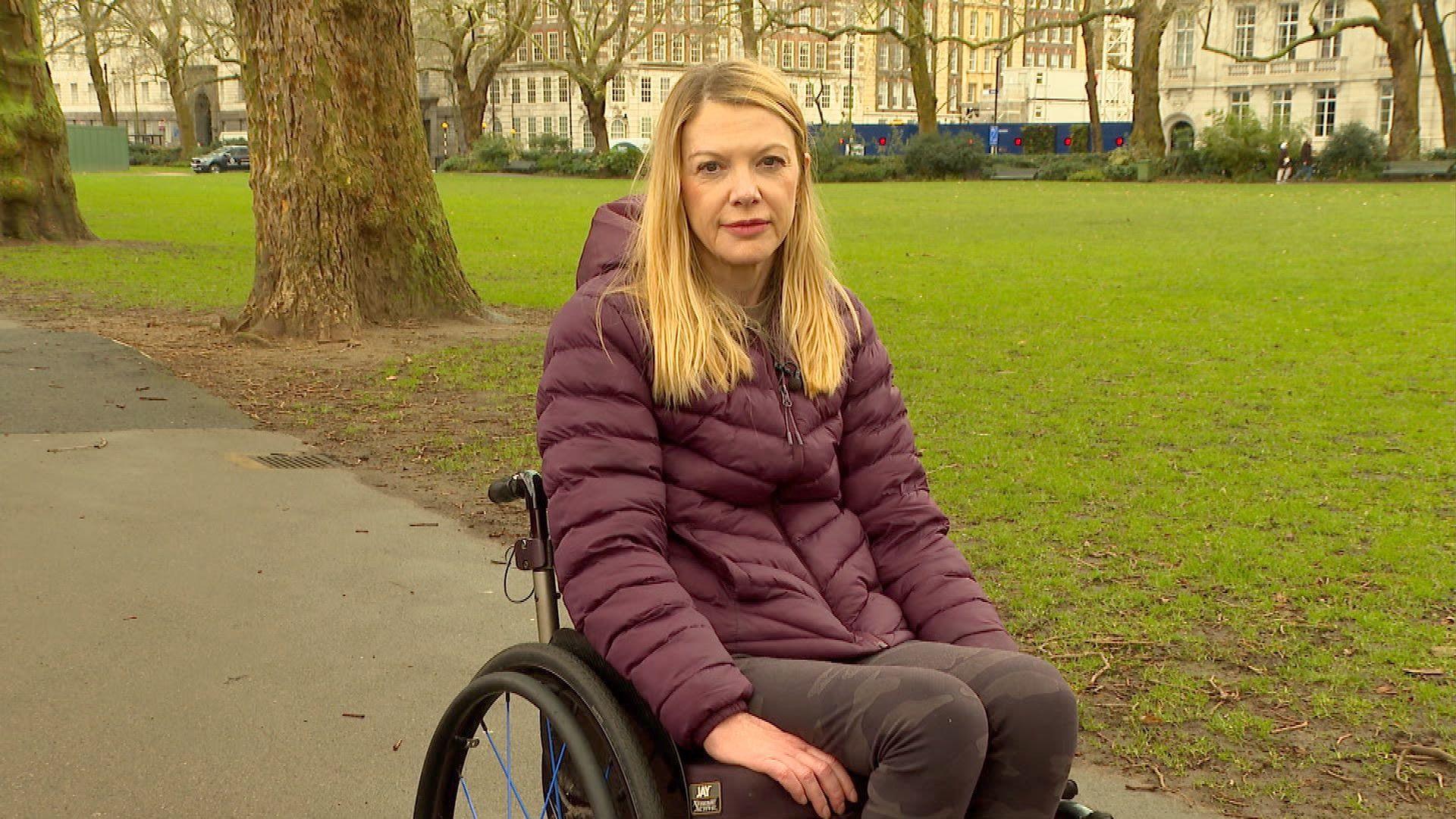
Chair of the Spinal Research charity, Tara Stewart said that every two hours in the UK, someone was paralysed
Get in touch
Do you have a story suggestion for Beds, Herts & Bucks?
Follow Beds, Herts and Bucks news on BBC Sounds, Facebook, external, Instagram, external and X, external.
More on stories like this
- Published20 May 2024
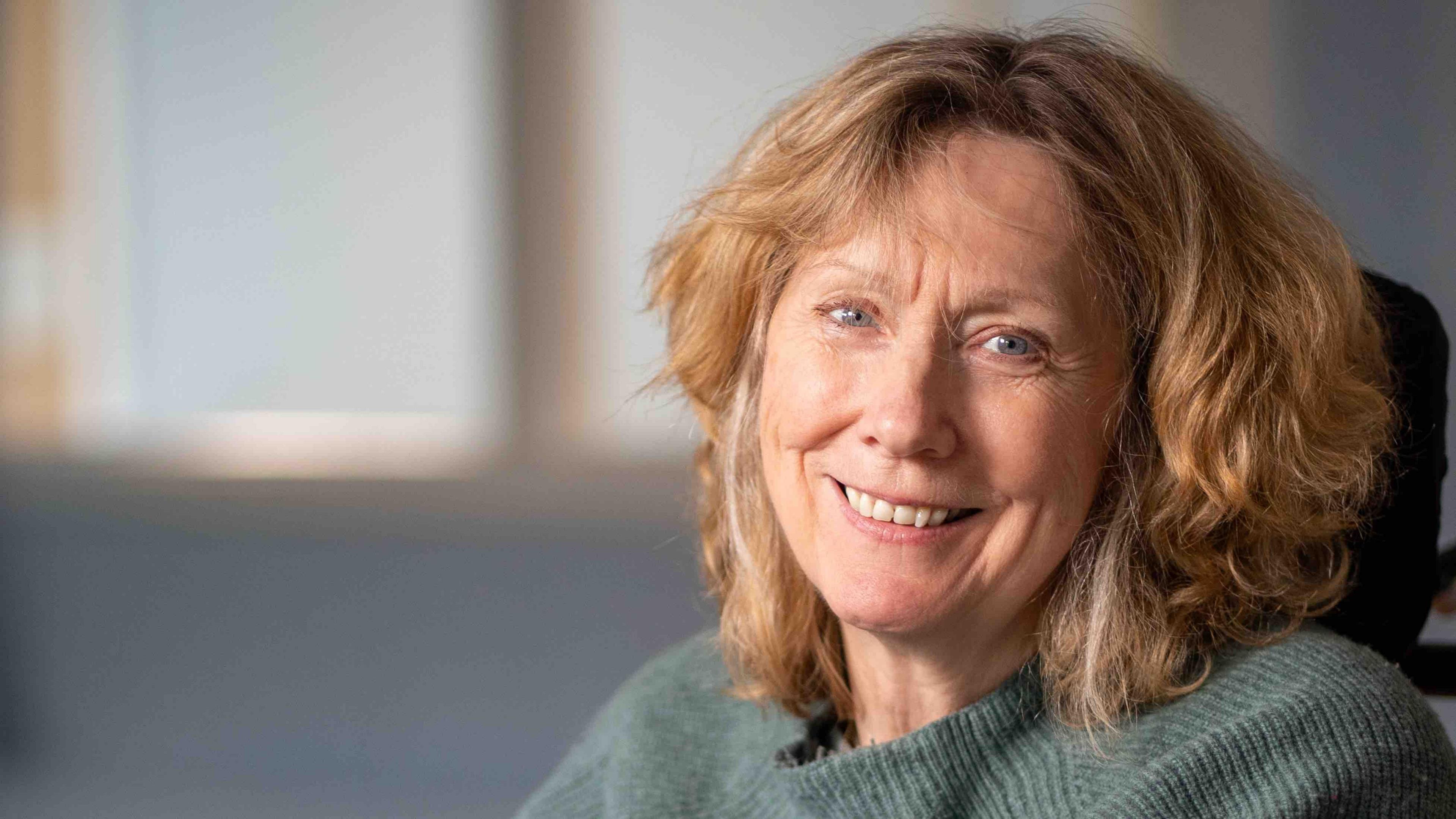
- Published20 February 2024
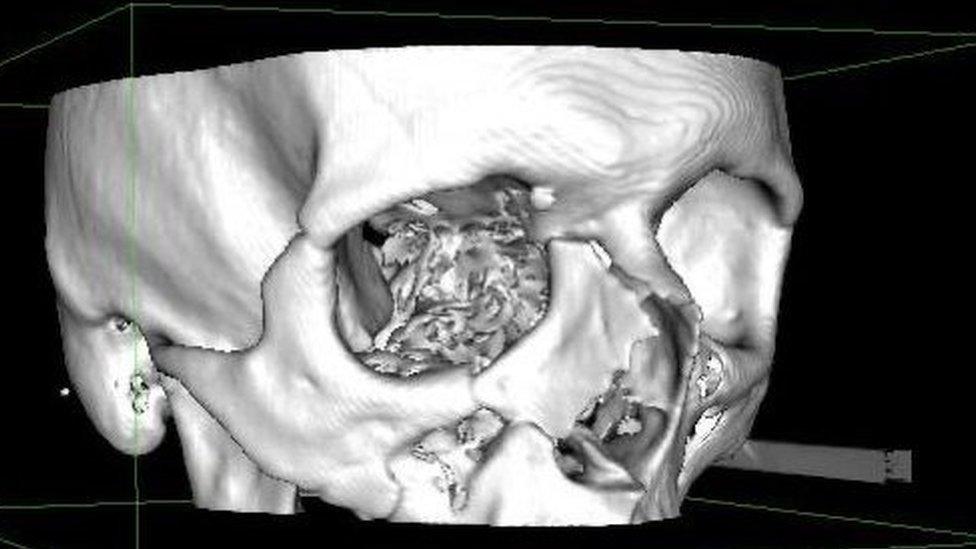
- Published7 February 2022
